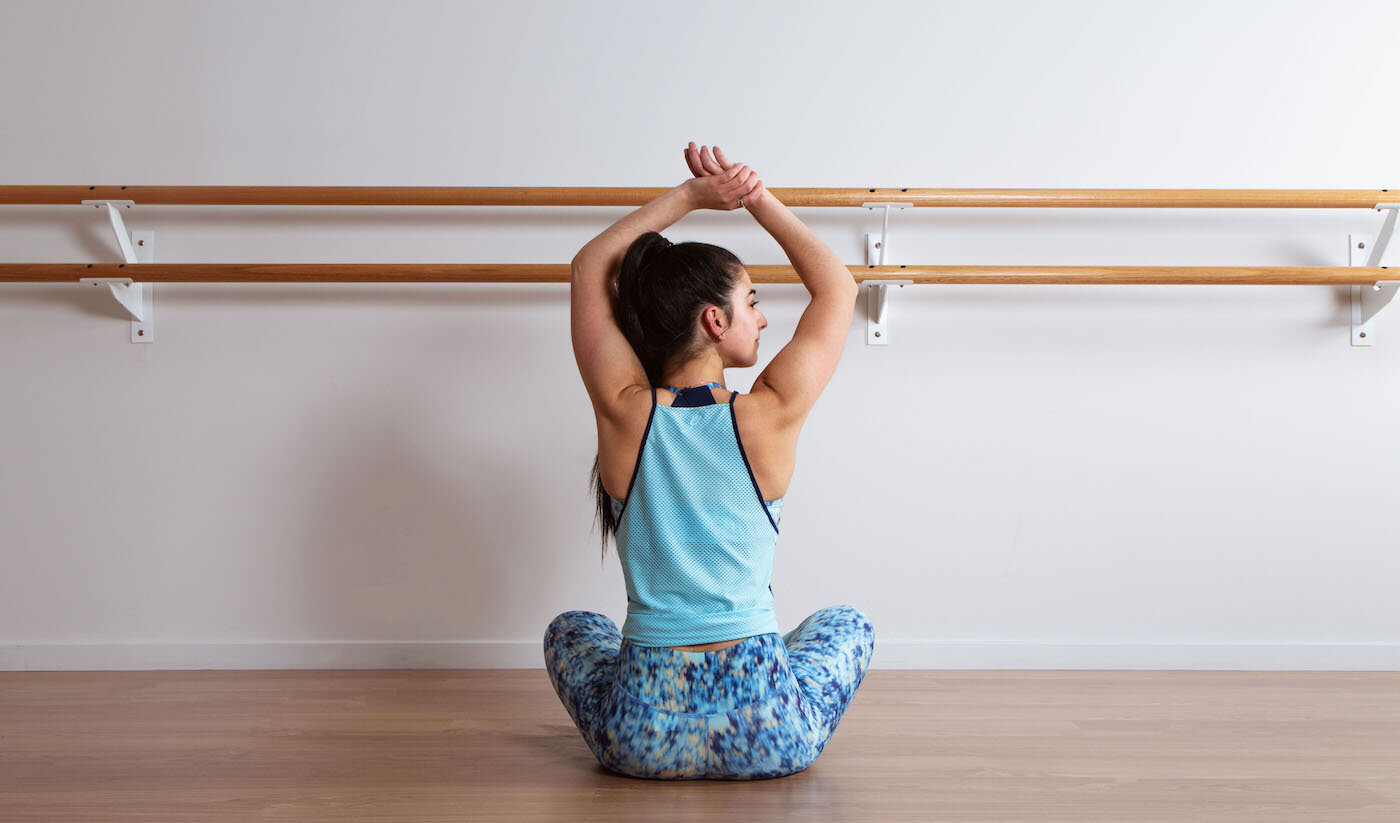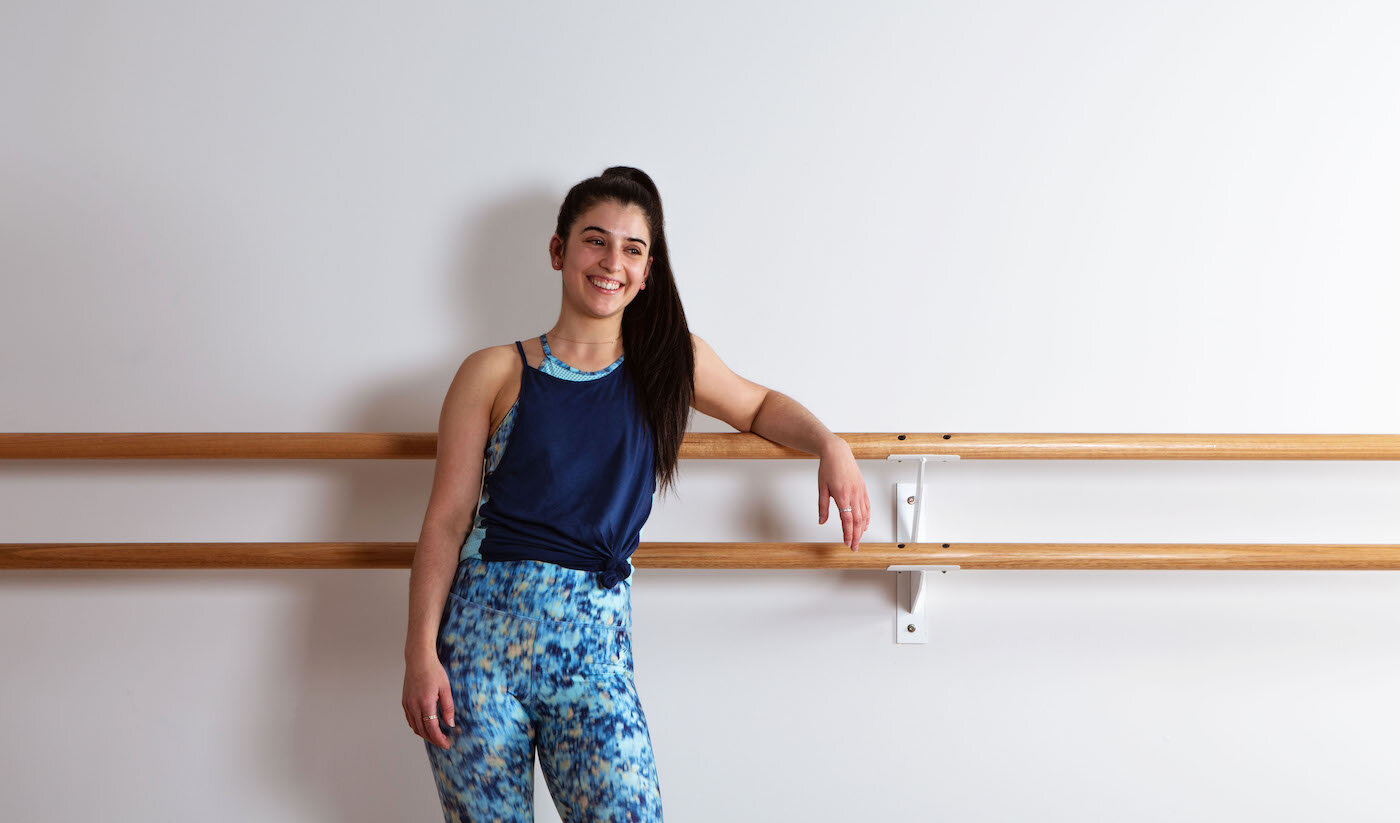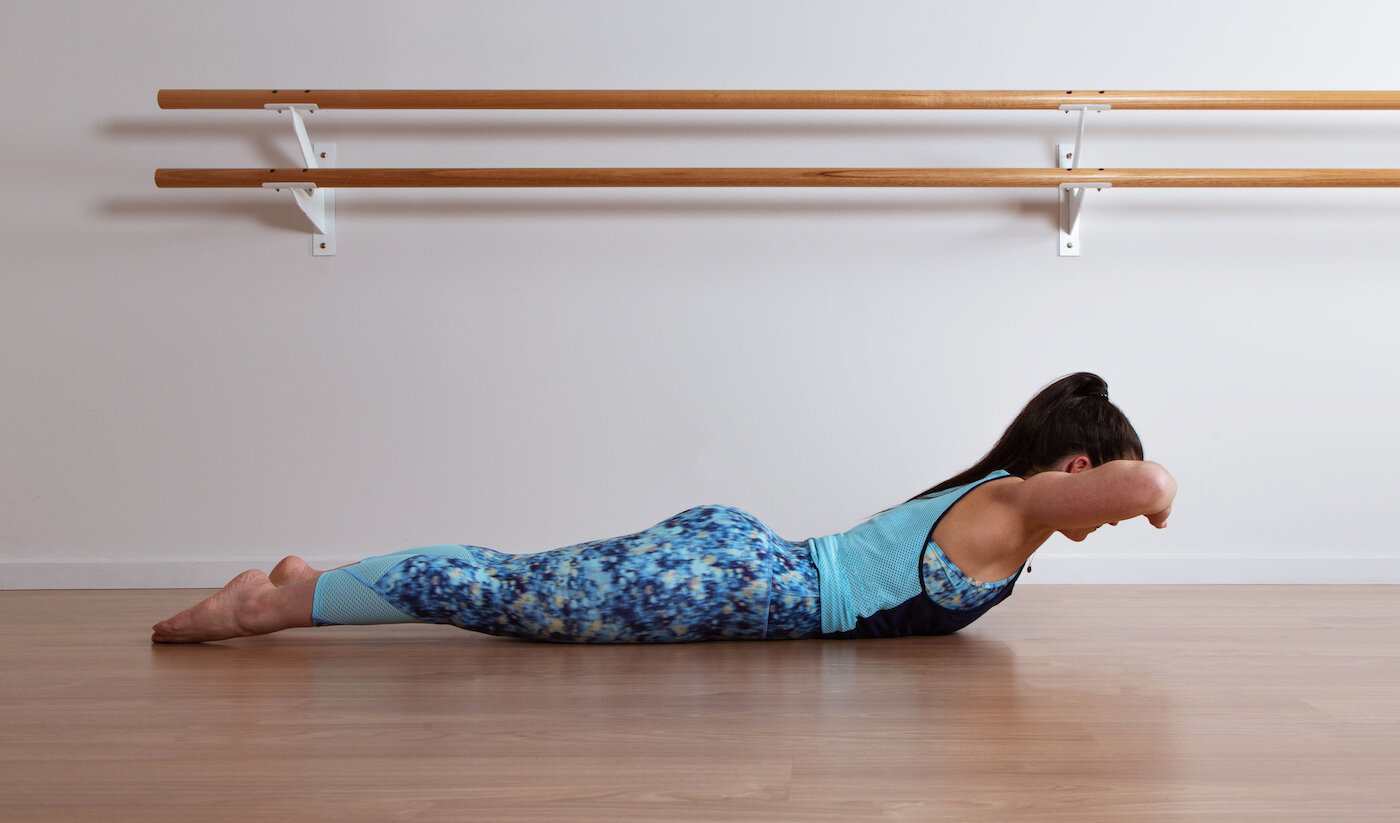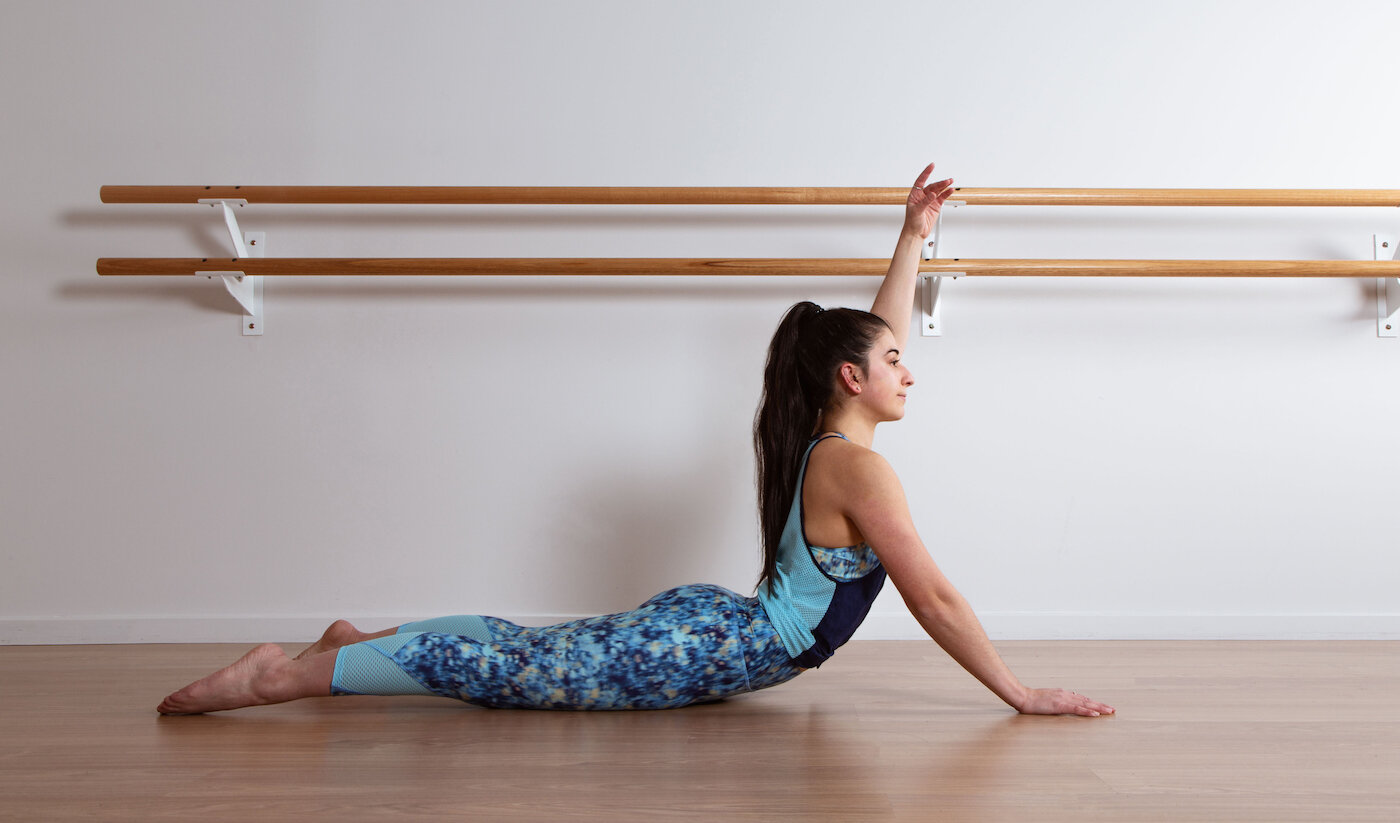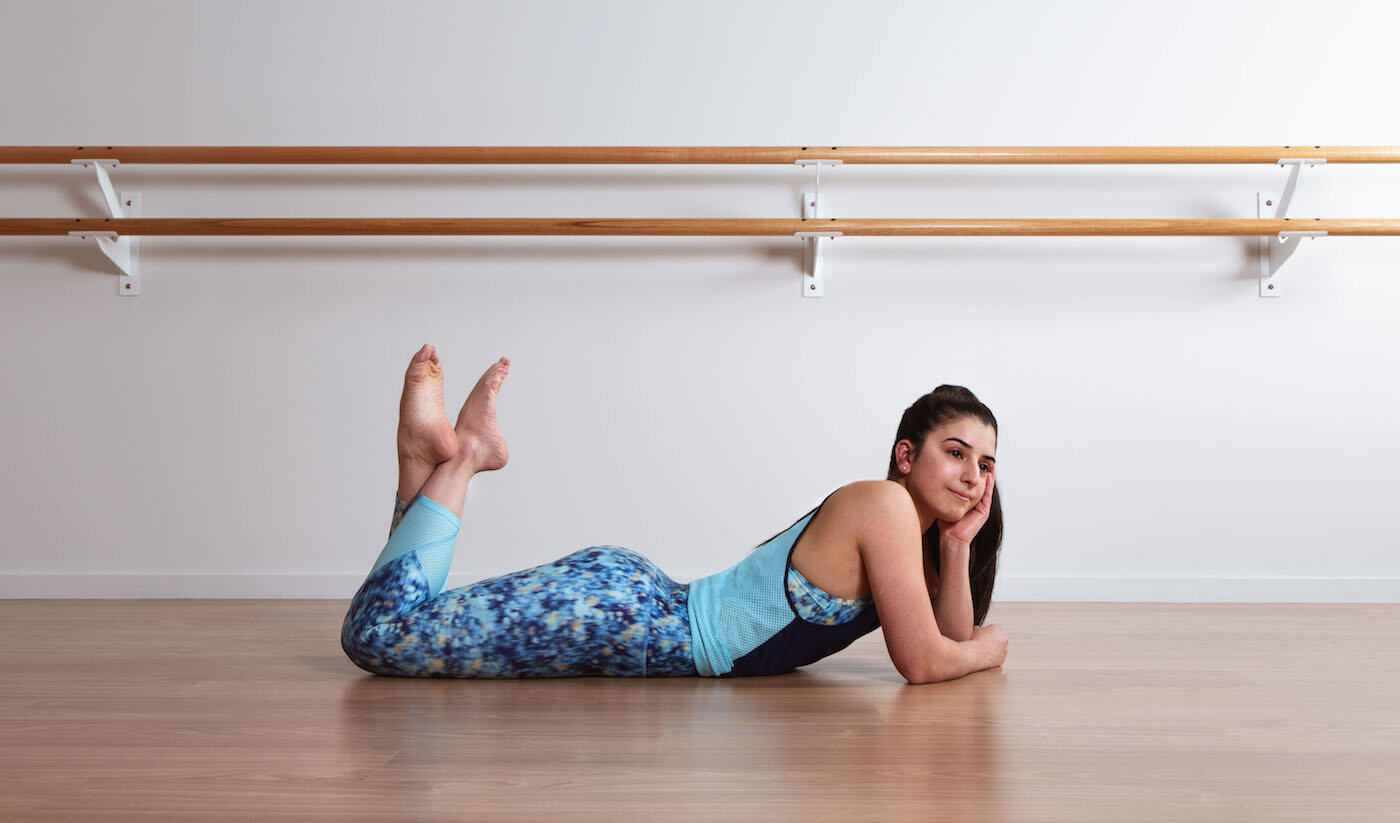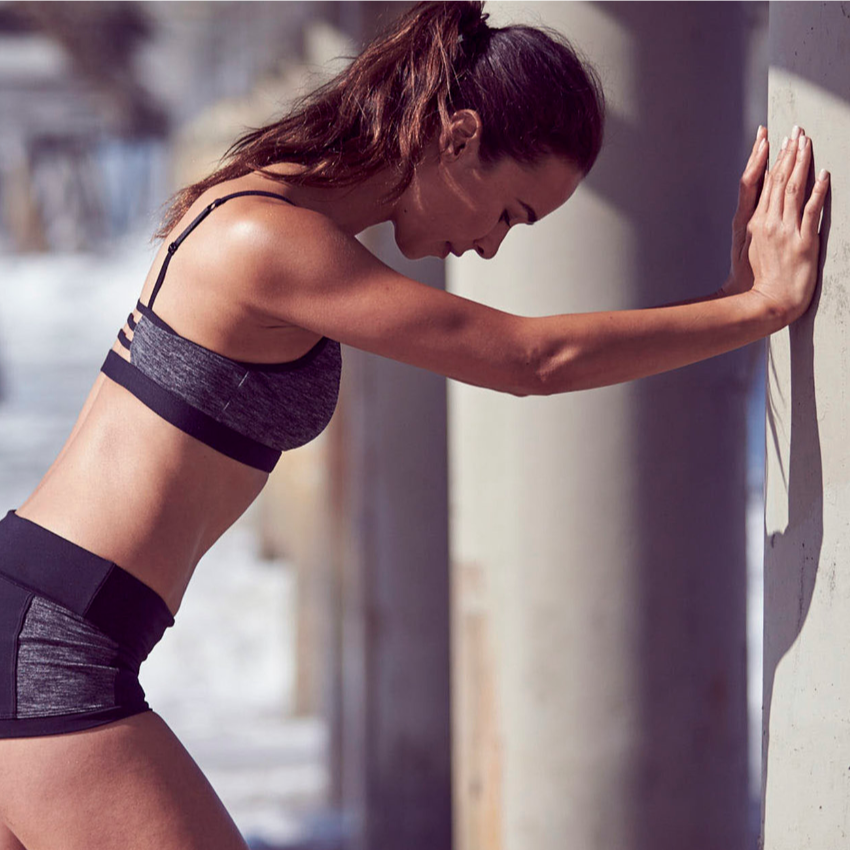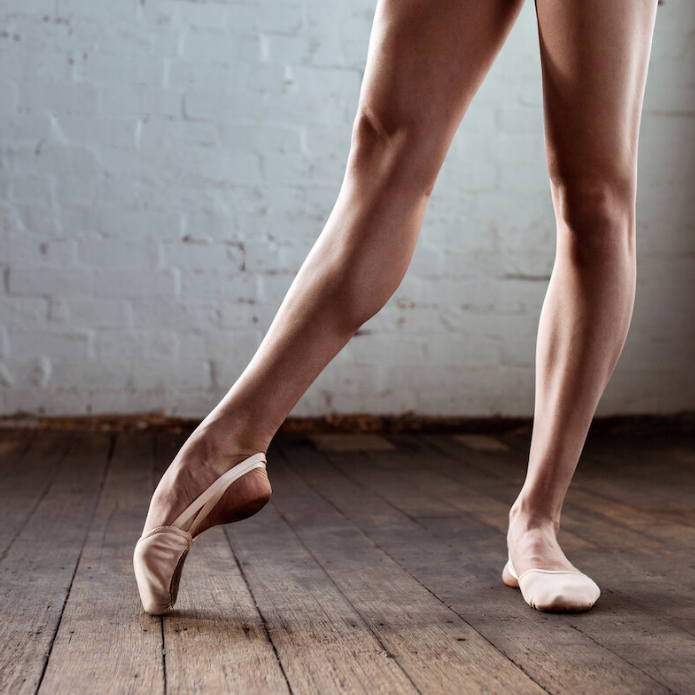Six Exercises to Support & Strengthen your Back
Having a strong back is not only essential to all aspects of dance, it also provides us support in our daily life. The back and its muscles are one of the most important parts of the human anatomy. Back muscles not only give us power and strength, they also play a major role in movement and function. Having a strong back improves overall quality of life, increases the ease of performing daily tasks and is protective against injuries. The back responds quickly to targeted strengthening exercises and often they can easily be performed at home. Below we have listed six easy exercises you can do to support and strengthen your back from the comfort of your own loungeroom.
Grace wears the Riley Crop Top in Black and the Phoenix Crop Top and Sabre Tight in Black from the ROAR by Yvette Lee Collection.
Plank
The exercise that we all love to hate. Planks are often associated as a core exercise, but they are so much more than that. They also target our backs, particularly the upper back, and allow you to build muscle while ensuring you aren’t putting too much pressure on your spine or hips. Regular planks can also reduce back pain through the strengthening of the core to support the back.
To perform a plank:
1. Place your hands directly under your shoulders (like you’re about to do a push up).
2. Ground your toes into the floor and squeeze your glutes to stabilise your body.
3. Keep your neck neutral, looking at a spot on the floor just in front of your hands (avoid looking down or up or you will break the line of the spine).
4. Try to imagine a line coming from your head to your toes and avoid dipping your hips too low (like you’re sinking) or lifting your hips too high (like you’re about to do a downward dog).
5. Hold the position for 20 seconds and then release. Repeat as many times as desired.
Aim to increase the length you can hold the plank for. If you feel like your alignment is changing, release the exercise and then start again. If performing a plank on your hands feels a bit too intense for your arms and shoulders, you can come down to your forearms.
Grace wears the Riley Crop Top in Black and the Phoenix Crop Top and Sabre Tight in Black from the ROAR by Yvette Lee Collection.
Side Plank
Just like regular planks, side planks are not only a core strengthening exercise but a back strengthening exercise too. With their focus on the obliques they are great at improving spinal stability through the activation of the abdominal muscles, back, hips, legs and shoulders. Unlike regular planks, they require a bit more balance and focus as your body weight is resting only on one arm and leg, so you also get to exercise your mind as well as your body.
To perform a side plank:
1. Lie on your side with one leg stacked on top of the other, then prop your body on your hand (higher intensity) or elbow (lower intensity) while keeping your feet stacked.
2. Raise the other arm in the air to form a straight line running from hand to hand.
3. As with regular planks, avoid trying sinking your hips too low. Imagine a straight line running from your head to your feet.
4. Hold the position for 15 seconds and then change sides and repeat on the other side.
You can make the exercise easier by unstacking your feet and using a wide stance with one foot in front of the other. If you want to increase the intensity, raise the top leg above the bottom leg and hold.
Grace wears the Willow Crop Top in Black and the Camilla Leggings in Dewberry from the Gemini Collection.
Swimmers
No, this doesn’t require you to go in any water! Swimmers are a great exercise that work primarily on the back while also including the core, hips, scapular and arms. It’s a strengthening exercise that can easily be tailored to the level you need it to be with only small modifications.
To perform swimmers:
1. Lie face down on the ground with your arms above your head.
2. Lift the opposite arm and leg off the ground at the same time, hold for a few seconds and then release.
3. Alternate with the opposite arm and leg and repeat.
4. You can perform this exercise slowly on each side, then lift both arms and legs off the ground at the same time and start to perform the same exercise but faster, as if you were 'swimming’,
5. To further increase the intensity, keep the legs ‘swimming’ and move the arms from above the head to the side of the body and back with a sweeping motion. Try to keep your upper body off the ground while you perform these.
Grace wears the Willow Crop Top in Black and the Camilla Leggings in Dewberry from the Gemini Collection.
Ensure you keep your knees stretched to avoid engaging the hamstring too much and using that muscle group instead of your back. If you want to further increase the intensity of the exercise, you could also use ankle weights on either the ankles, wrists, or both!
Grace wears the Willow Crop Top in Black and the Camilla Leggings in Dewberry from the Gemini Collection.
Bridges
Bridges strengthen your lower back, buttocks, hips and core, while also assisting with stabilising your spine. The target muscle is the ‘erector spinae’ which runs the length of your back from your neck to your tailbone. Performing bridges will improve the strength of this muscle, as well as support the surrounding and connecting muscles.
To perform bridges:
1. Lie on your back with your arms by your side, knees bent hip distance apart, and feet flat on the ground under the knees.
2. Engage your abdominal muscles and buttocks by pushing your lower back into the ground before lifting your hips up, rolling through the spine with the upper back being the last thing to leave the ground.
3. Raise your hips to create a straight line from your knees to your shoulders.
4. Squeeze your buttocks and core, thinking of pulling your belly button towards your spine.
5. Hold for 10 seconds and then lower back down to the ground, rolling through the spine starting with upper back and finishing with your bottom being the last thing to touch the ground.
6. Repeat 10 times.
Grace wears the Willow Crop Top in Black and the Camilla Leggings in Dewberry from the Gemini Collection.
Avoid raising your hips too high so you don’t hyperextend the back. If you find your hips starting to dip, lower the hips earlier and once the strength increases you can start to hold them longer. If you want to further increase the intensity of this exercise, you can raise one leg and perform the exercise on one leg. Alternatively, you can raise your arms in front of the chest and perform the exercise without the arms on the ground.
Grace wears the Serena Crop Top and Bailey Leggings in Momentum and the Blair Singlet in Indigo from the Momentum Collection.
Back Raises
Back raises are a good exercise to do before you progress to Cobra Pose. They are targeted at working more of the thoracic region of the back (middle section) than your lumbar region (lower back). The thoracic region of the back is responsible for supporting good posture, and with the amount of time we spend on devices or hunched over desks, we need to prevent our shoulders from rolling forward as much as we can.
To perform back raises:
1. Lie face down on the ground with your arms out to the side (like a cross shape).
2. Bend your arms at the elbows and place your hands at your forehead.
3. Keeping your legs on the ground, hip distance apart, engage your thighs and lift your chest off the ground, keeping your arms in place.
4. Hold your upper body off the ground for 10 seconds and then lower back down.
5. Repeat 10 times (or more if desired).
To increase the intensity of this exercise, try to keep your legs together rather than hip distance apart, and keep contact with the ground.
Grace wears the Serena Crop Top and Bailey Leggings in Momentum and the Blair Singlet in Indigo from the Momentum Collection.
Cobra Pose
Traditionally a yoga position used to stretch and strengthen the back, Cobra Pose can be adapted to further improve back strength for dancers, allowing that beautiful cambré or arabesque to become easily achievable.
To perform cobra pose:
1. Lie face down on the ground with your hands under your shoulders, elbows bent.
2. Keeping your legs on the ground, hip distance apart, engage your thighs and lift your chest off the ground, extending your arms as you go.
3. Hold at the peak of your back extension for approximately 20-30 seconds and then lower back down to the ground.
4. Repeat 5 times and then start to increase the intensity.
5. On the next back extension, lift one arm off the ground and place in fifth position. Hold for 20 seconds, lower and then lift the other arm up to fifth position and hold for 20 seconds. Lower both arms and lower the body down to the ground.
6. Repeat 5 times and then try to lift both arms off the ground at the same time, without allowing the back legs to lift off the ground.
If lifting both arms at the same time is proving difficult, you can get someone to assist you by holding your legs down on the ground. Once your back strength increases you’ll be able to hold both arms in fifth with a bit more ease.
Grace wears the Serena Crop Top and Bailey Leggings in Momentum and the Blair Singlet in Indigo from the Momentum Collection.
When it comes to improving the strength of your back, slow and steady progression is often best. You know your own body better than anyone else, so listen to what it’s telling you and if it’s saying it’s time for a break, take that break. For more strengthening and conditioning articles to keep you in tip top shape over the break, be sure to check out our other posts on ‘How to prevent muscle soreness’ or ‘Cross-training for dancers’ in the Energetiks Blog. Happy training!
Article by Sheree Ronai-Horvath
Photography by Elly Ford

